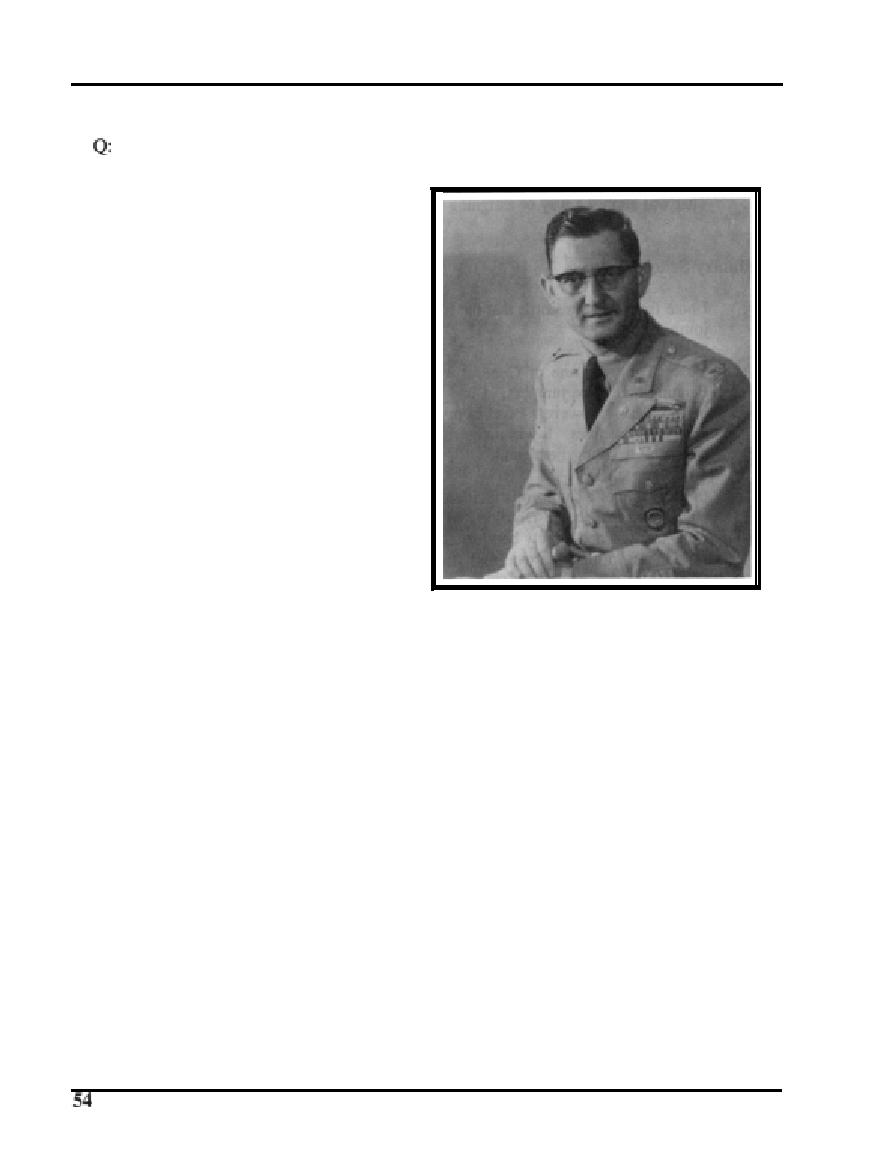
Engineer Memoirs
What did you do at the Infantry School?
My work at the Infantry School was
A:
of two types: official and unofficial.
Officially, I headed the group of
instructors who taught the infantry
regiment in the attack. I redesigned
the course and incorporated the
lessons we had learned in combat in
Korea. The instruction included the
for
helicopters
use
of
reconnaissance, attack, logistics,
and evacuation of casualties. It also
stressed how to maximize the use of
firepower. We taught that infantry
has to move in very rapidly as soon
as supporting fires are lifted so as to
maximize the shock value of the
fires. Several of these ideas were
new to the extent that new weapons
and new methods of mobility were
available. But for the most part, the
Colonel Edward
Rown y, March 1953.
new equipment brought old ideas
back into prominence.
As for my unofficial job, I had become quite interested in new regimental infantry
tactics. It was contrary to Army policy to teach anything but approved tactics at
the Infantry School. The fundamental idea was that Benning was to indoctrinate
and not innovate. I thought that Benning should do both and received permission
to hold courses where attendance would be voluntary. We called these unofficial
instruction courses PROFIT: professional improvement time. One of my ideas was
to assist ground attacks with nuclear weapons, a new and controversial subject. At
that time the possession and use of nuclear weapons were the sole prerogative of
the Air Force. The idea was to use helicopters in combat to exploit rapidly a
nuclear attack. The concept was to drop a nuclear weapon in the enemy's rear.
Before the enemy could react from the shock, we would land troops, dressed in
protective clothing, from helicopters. I called this the "swarm of bees" concept.
I also developed concepts of moving troops in helicopters behind enemy lines. I
had experimented with helicopters in Korea and was convinced that the mobility
and discriminating fires they afforded could be used in counterinsurgency warfare.
My PROFIT courses became quite popular; there was standing room only. At one
session, a young captain began asking me some very intelligent and provocative



 Previous Page
Previous Page
